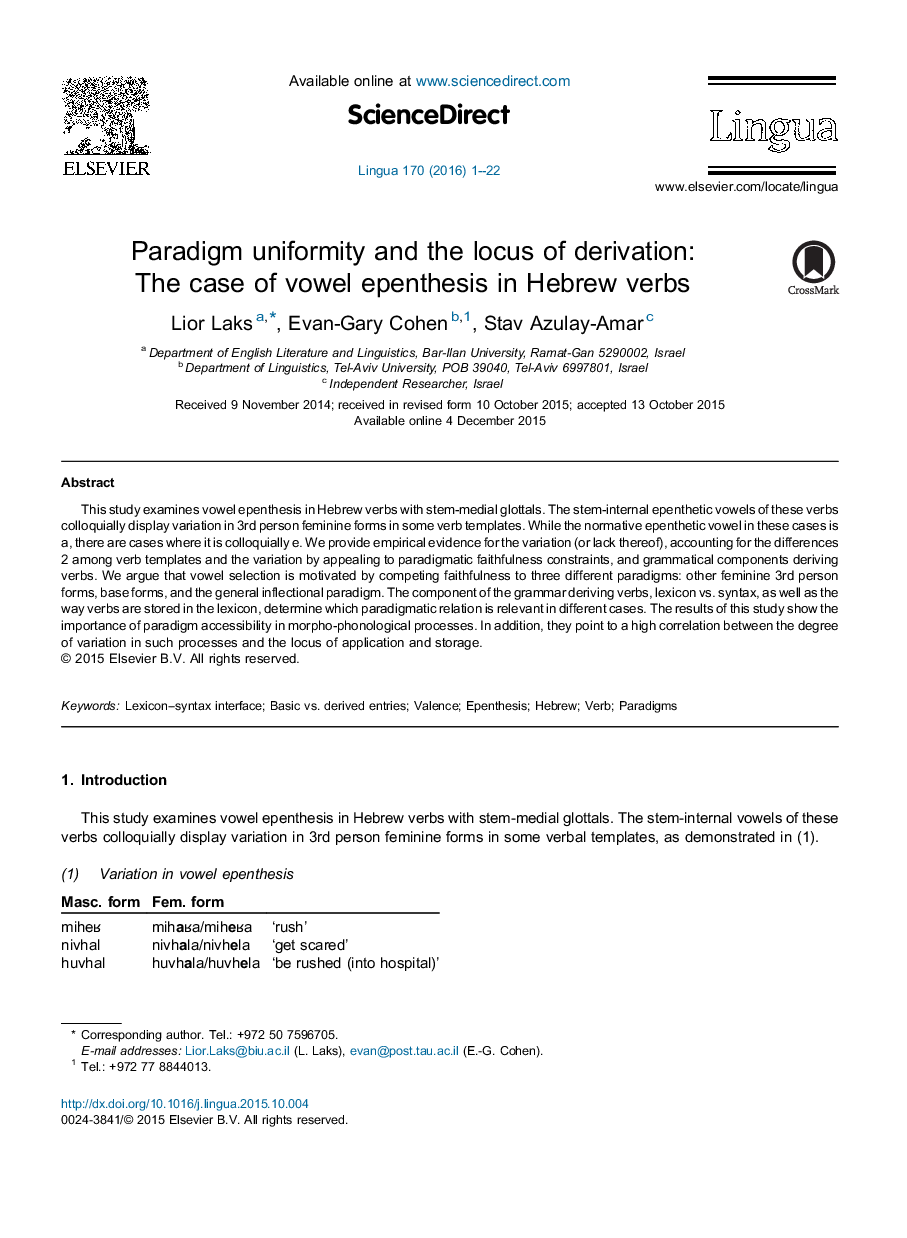| کد مقاله | کد نشریه | سال انتشار | مقاله انگلیسی | نسخه تمام متن |
|---|---|---|---|---|
| 935536 | 1475043 | 2016 | 22 صفحه PDF | دانلود رایگان |
• We examine variation in vowel epenthesis in Hebrew verbs with stem-medial glottals.
• We provide empirical evidence for vowel selection with respect to verbal patterns.
• Vowel selection is motivated by faithfulness to three different paradigms.
• Variation also stems from the locus of derivation – lexicon vs. syntax.
This study examines vowel epenthesis in Hebrew verbs with stem-medial glottals. The stem-internal epenthetic vowels of these verbs colloquially display variation in 3rd person feminine forms in some verb templates. While the normative epenthetic vowel in these cases is a, there are cases where it is colloquially e. We provide empirical evidence for the variation (or lack thereof), accounting for the differences 2 among verb templates and the variation by appealing to paradigmatic faithfulness constraints, and grammatical components deriving verbs. We argue that vowel selection is motivated by competing faithfulness to three different paradigms: other feminine 3rd person forms, base forms, and the general inflectional paradigm. The component of the grammar deriving verbs, lexicon vs. syntax, as well as the way verbs are stored in the lexicon, determine which paradigmatic relation is relevant in different cases. The results of this study show the importance of paradigm accessibility in morpho-phonological processes. In addition, they point to a high correlation between the degree of variation in such processes and the locus of application and storage.
Journal: Lingua - Volume 170, January 2016, Pages 1–22
